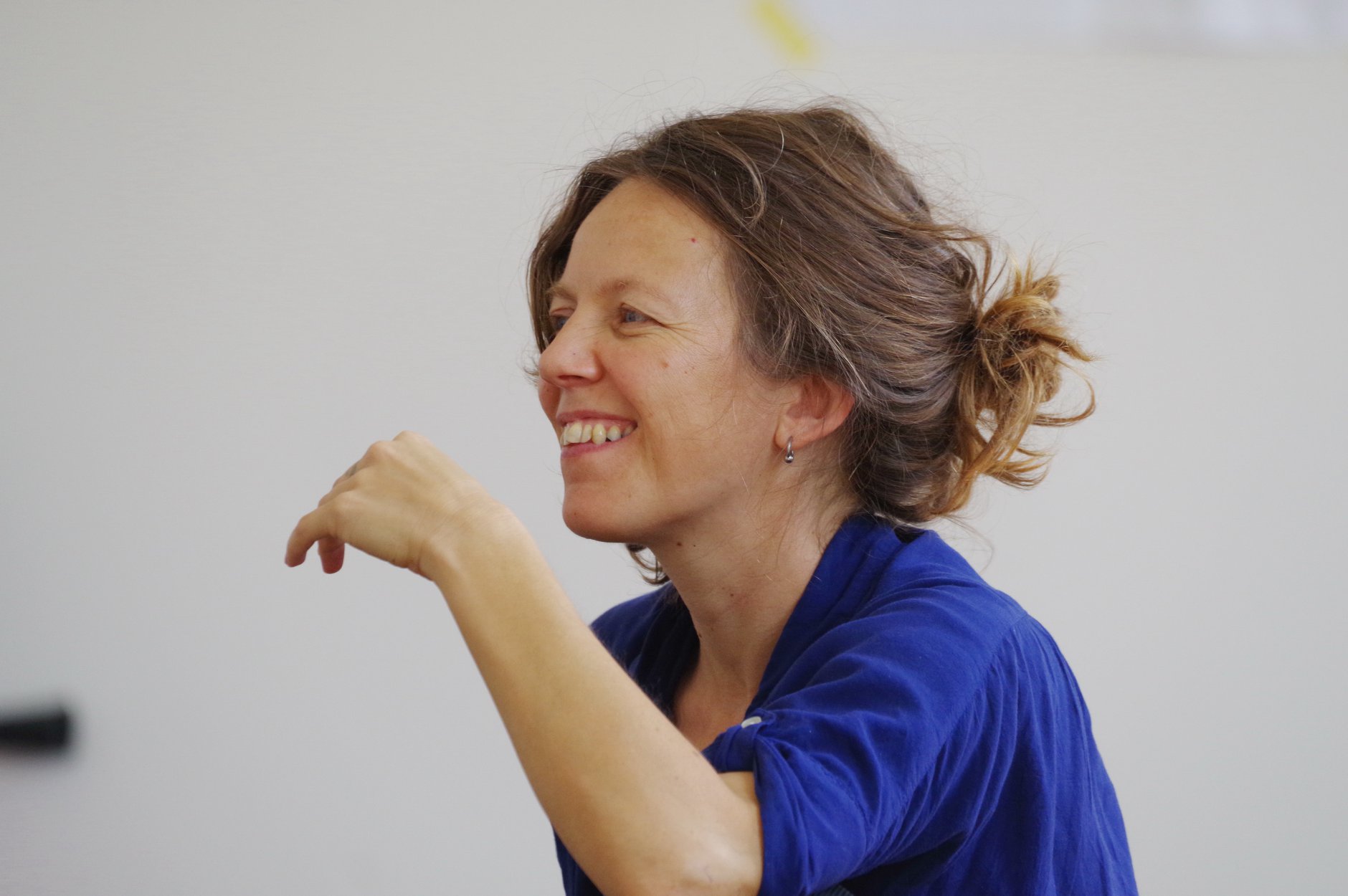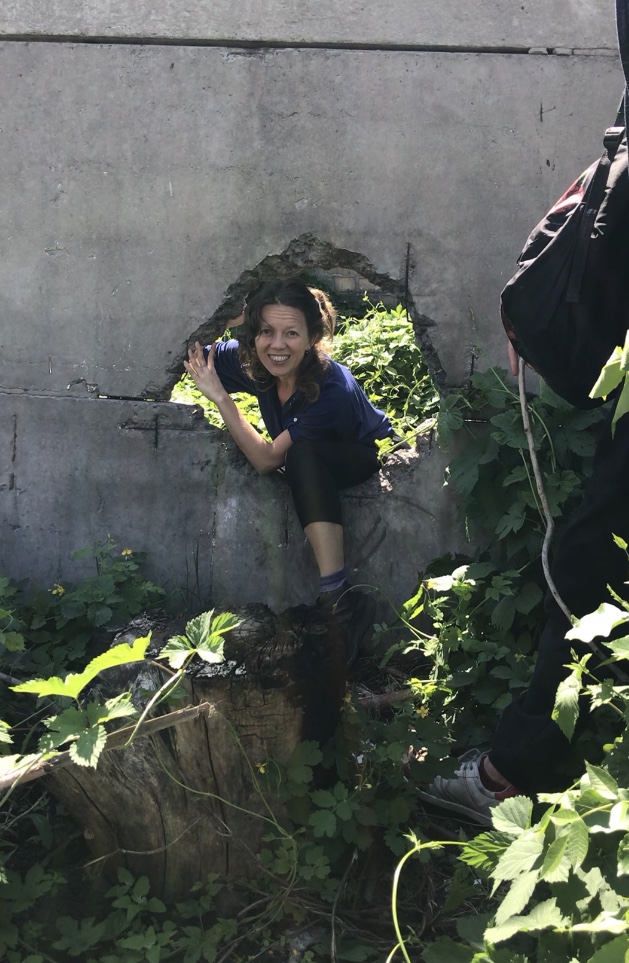The CASSANDRA Project
In ancient Greek mythology Cassandra was cursed by the god of reason and logic, Apollo, to always speak the truth and never be believed. She represents intuition, and her myth reflects western society’s devaluation of divine feminine knowledge.
The CASSANDRA Project is intended as a space for Cassandras in our community to speak their truth. It’s a space for female-identifying myth-busters to speak out and up for women, LGBTQ, and other marginalized peoples. While there are many columns and blogs that focus on women whose success is defined by the patriarchal values of wealth, power and prestige within the system, this column is dedicated to celebrating women for just being, a political act in and of itself in today’s world. It is a space to share the ways in which female-identifying people have maintained their relationship to the divine feminine forces of intuition and creativity outside the status quo, and in spite of male dominated industries and patriarchal systems.
This column is about, for, and dedicated to all of the daughters of the witches you didn’t burn.

Katya Chizayeva (Photo by: Anastasiia Rembetska)
CASSANDRA 4: Katya Chizayeva
Katya Chizayeva was born and raised in Ukraine; she emigrated to the US as a Jewish refugee in the 90s. She is a queer performer, dancer, acupuncturist, and herbalist. Katya values empowerment, making space for queer artist’s voices, and for relating personal narratives to wider social perspectives.
Astrological Sign: Aquarius
Favorite Time of Day: Mornings
Natural Habitat: Mountains and oceans
Most easily elicited emotion: Aggression
Favorite Potion: Rose Hawthorn with Avina and Vitex
What is a female archetype that you identify with and why?
I identify with a witch living outside the village in a little house. People seek her. She is on the margins of the village but also a part of it.
What is your connection to your ancestry or a woman in your life whom you gained a lot of wisdom from? How do you continue that lineage?
I am from Russia. On my father’s side I come from peasant stock, women who value what they can hold onto during the winter. On my mother’s side the women are Jewish and value education. All have connections to violence and oppression, and the resilience – like a tenacious weed that will grow anywhere – needed to survive.
Recently, all of my influential collaborators and mentors have been women. My intimate partner the past five years was also female, and I learned so much from her about healthy queer parenting, the value of grounding in small things, and how to have faith that I am worthy of being loved.
I have a sense of having allies in the invisible realm. Female ancestors wounded by inter-generational trauma. Witches, healers, scientists, warriors, artists, mothers, grandmothers. I tune into the central channel in the top of my head and connect myself to those watching over me. There is a certain sense of releasing and trusting the universe. Tapping into a kind of flow and allowing things to unfold. So far it’s been working.

Katya in Kyiv. (Photo by: Meryl Murman)
When does your intuition speak most strongly to you?
When I’m traveling, or when there is a crisis. Also when I dance.
How is your body in contact with the world?
Simple things like feeling weight and [the] floor and [the] sky. Observing the world being observed by me.
I have always been able to tune into nature easily; it’s very sensual for me. I definitely respond strongly to sound and movement too.
What is something you are seeking to know or understand more deeply about yourself?
There are three things.
The first is how to connect to others and how to function within groups. My emigration and poor assimilation has made me depend on myself and self-isolate often. I am good at living alone and it has taken me years to understand how to not alienate myself in various social groups.
The second is how to survive and thrive in this economic system without compromising myself. I gravitate toward fringe occupations: herbalist, activist, acupuncturist, dancer. I hope to find a way to live sustainably while being on these paths.
Last, I want to learn through dance and performance making processes. My immediate family has always been in survival mode, and I grew up believing one had to be special or have money to be an artist. I want to abandon this mentality and embrace my creative agency.
How do you practice self love?
I’m really good at that actually. I take myself out to eat good food, or I cook. I give my body time and respect, movement and rest. I go to places that interest me and feed my wanderlust.
..and I take a day off during the first day of my cycle.
I go back to my roots and to my body. I either do something physical to get in touch with my breath and agency — like singing, swimming, or running in the woods — or I write. Lately I have been reaching out to other people more, for friendship and support.
Where do you find discrimination toward women or marginalized people suffering from injustices in your life? What do you do?
I came to New Orleans as a relief worker immediately following Katrina to work at a free clinic. In the first few years I felt all the problems of the city hit me at once and I wanted to fix it all. The broken food network, the health care system, the injustices towards black and brown people. I took a long break,and when I returned I started to view my activism as more private work providing affordable sliding-scale healing services, such as acupuncture, herbalism, massage, and health care advocacy.
I had to recover from a bit of a martyr complex, and now I choose wisely where and how I respond to injustice with integrity. I’ve supported many local organizations, but I gravitate most toward supporting individuals who work in those organizations. I offer healing services so they can support others in turn, with their various skills.
I see discrimination towards women everywhere in society. It has damaged my entire relationship with men. I attempt to be vocal and transparent about my feelings and engage in productive discourse.
There is also a horrendous hypocrisy towards emigrants in the US, and police violence and the prison industrial complex is modern day slavery. I work to build connections, show up, speak up, listen and make public art alongside others responding to these things.
What are your experiences/thoughts on violence toward women and how do you cope or work towards reversing that?
I am fascinated about whether its possible to reverse violence in society. I’m very scared of violence. I also recognize how violence exists within me. Perhaps it’s more under my control to transform violence within me than transform violence outside of me.
I grew up in a country with common disregard for human rights and with a violent parent. I am very aware how violence is quickly accessed in people. My father is a wrestler and a fighter, a narcissistic alcoholic and a tragic egomaniac. I have felt violence directed toward myself, my sister, my mother, and most women he comes in contact with from childhood to adulthood. I grew up with confused messages about womanhood, values of respect, integrity, care, love, and violence.
I have been abused, and I have in turn been abusive. I evolved to be extremely sensitive to unequal power dynamics and unpredictable outcomes, which fostered self doubt, dissatisfaction and having a quick judgement oriented mind. All are coping strategies that helped me survive. It has been a tremendous journey to undo the wirings of my trauma, unhook from external stereotypes as well as internal sabotage, and to feel safe again.
An interesting point in my life was about six years ago when I discovered aikido. It followed a very bad break up with a guy who was lying, cheating, and abusing my trust. Engaging in a physical practice with men in an environment that respected all bodies and voices was very healing to me.
Aikido as a martial art was extremely instrumental in healing that archetype of a warrior that was instilled in me by my father and the culture of the 90s – a culture of competition and not having enough. It goes beyond physical force or self defense, it’s more about how to control your force and not use it to do harm when you can avoid it. And when you do harm, how to work with the consequences with kindness and compassion, and not get stuck in the past, but approach things anew, as new.
If you could go back and speak to a younger version of yourself what advice would you give her?
Dance!
Dance is healing because I feel it. Being able to connect to it through a very direct felt physical experience has been extremely transformative for me. To learn to feel instead of think gets me out of the overthinking body. It helps me connect to my intuition and to trust the world. This has been critical for my healing.
I would also tell her – you can always go back home, don’t think there’s nothing left there. But walk in the future, not the past.
**Katya will be performing this weekend in The Vanishing Performance Festival at Mudlark Theater (1200 Port Street) Sunday, December 2 at 7:00 PM
https://www.facebook.com/events/406834186515600/
 NOLAbeings Multimedia artist Claire Bangser created NOLAbeings as a portrait-based story project that marries...
NOLAbeings Multimedia artist Claire Bangser created NOLAbeings as a portrait-based story project that marries...  Voodoo in New Orleans: Reviving history: New Orleans fortune telling This article takes a deep dive into the history of Voodoo in New Orleans, its hybridization with Catholicism, and its present-day place in the city's culture. The author visits fortune-tellers in the French Quarter, using their guidance as a tool for introspection rather than a deterministic predictor of the future. Through her experiences in New Orleans, the author feels a mystical connection to both the past and the future.
Voodoo in New Orleans: Reviving history: New Orleans fortune telling This article takes a deep dive into the history of Voodoo in New Orleans, its hybridization with Catholicism, and its present-day place in the city's culture. The author visits fortune-tellers in the French Quarter, using their guidance as a tool for introspection rather than a deterministic predictor of the future. Through her experiences in New Orleans, the author feels a mystical connection to both the past and the future. 
Thank you Meryl Murman, for this piece on Katya Chizayeva.
Katya,
I loved reading your piece here, and though my background is different, I resonate strongly with your perspective. I love what you say about self-care. Dance, especially dancing weekly in a women’s dance circle was one of the most healing things I have done. That was in Oakland. I want to connect with a women’s sacred dance circle here or to start one. Sorry I missed your performance at the Mudlark!